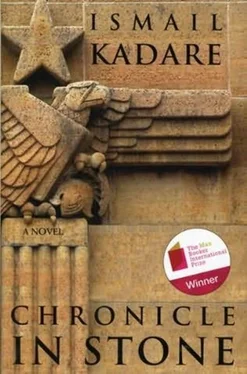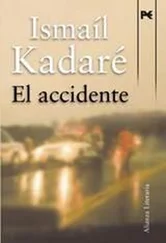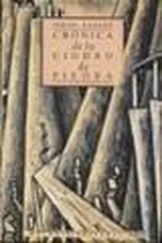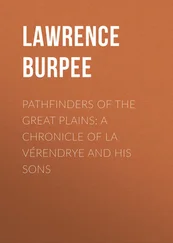Ismaíl Kadaré - Chronicle in Stone
Здесь есть возможность читать онлайн «Ismaíl Kadaré - Chronicle in Stone» весь текст электронной книги совершенно бесплатно (целиком полную версию без сокращений). В некоторых случаях можно слушать аудио, скачать через торрент в формате fb2 и присутствует краткое содержание. Жанр: Современная проза, на английском языке. Описание произведения, (предисловие) а так же отзывы посетителей доступны на портале библиотеки ЛибКат.
- Название:Chronicle in Stone
- Автор:
- Жанр:
- Год:неизвестен
- ISBN:нет данных
- Рейтинг книги:4 / 5. Голосов: 1
-
Избранное:Добавить в избранное
- Отзывы:
-
Ваша оценка:
- 80
- 1
- 2
- 3
- 4
- 5
Chronicle in Stone: краткое содержание, описание и аннотация
Предлагаем к чтению аннотацию, описание, краткое содержание или предисловие (зависит от того, что написал сам автор книги «Chronicle in Stone»). Если вы не нашли необходимую информацию о книге — напишите в комментариях, мы постараемся отыскать её.
Chronicle in Stone — читать онлайн бесплатно полную книгу (весь текст) целиком
Ниже представлен текст книги, разбитый по страницам. Система сохранения места последней прочитанной страницы, позволяет с удобством читать онлайн бесплатно книгу «Chronicle in Stone», без необходимости каждый раз заново искать на чём Вы остановились. Поставьте закладку, и сможете в любой момент перейти на страницу, на которой закончили чтение.
Интервал:
Закладка:
“What about Vasiliqia?”
Xhexho snorted.
“They’re keeping her locked up. Who knows what they’re waiting for.”
In the afternoon Ilir came over.
“Isa and Javer have got revolvers,” he told me. “I saw them with my own eyes.”
“Revolvers?”
“Yeah. But don’t tell anyone.”
“What are they going to do with them?”
“They’re going to kill people. I was looking through the keyhole and heard them arguing about who they were going to kill first. They’re making a list. They’re still there in Isa’s room, arguing.”
“Who are they going to bump off?”
“Vasiliqia first, if she comes out. Javer wanted to put Gjergj Pula second, but Isa was against it.”
“That’s odd.”
“Let’s go listen through the keyhole.”
“OK.”
“Where are you going?” my mother asked. “Don’t go too far. You never know, Vasiliqia might come out!”
Isa and Javer had left the door ajar. We went in. They had stopped arguing. Javer was even humming a tune. Apparently they had reached agreement. Isa’s glasses looked bigger than usual. The lenses gleamed. They turned to look at us. They had the death list on them. You could tell from the way they looked.
“Can we go out and play,” Ilir asked, “or will Vasiliqia come out?”
Isa stared at us, not moving. Javer frowned.
“I don’t think they’re letting her out,” he said. “Her time has passed.”
There was a long silence. From the window you could see the road and part of the airfield beyond. The cows were still grazing on it. A vague memory of the big plane came back to me in flashes, as it had already several times. Far above the boring talk of Vasiliqia and the shameful behaviour of Bufe Hasani, its gleaming metal sparkled, so distant that it strained my eyes. That’s a point: where was it now? The image of the dead bird with its wings folded under it now mingled in my mind with Suzana’s frail, almost transparent limbs, and the three of them together – plane, bird and Suzana – mixing a young girl’s flesh, alloy and feathers, swapping life and death, had forged a single and extraordinary being.
“Her time has passed,” Javer repeated. “You can walk the streets without fear.”
We left. The streets were not as empty as Xhexho had said. Çeço Kaili and Aqif Kashahu were tramping over the cobblestones. Çeço Kaili’s red hair looked like a flame fanned by the wind. They were often together these days. Perhaps grief at their daughters’ disgrace had united them. One day Ilir had heard some women say that for a father, having a daughter who had been kissed by a boy was practically the same thing as having a daughter with a beard.
Both men looked glum. Lady Majnur had come to her window with a twig of marjoram in her hand. The houses of the other ladies which stood beside hers had their windows tightly shut. The Karllashi house, with its massive iron door (the hand-shaped iron knocker reminded me of the English pilot’s severed arm), was silent.
“Should we go to the square and see the hole in the statue?” asked Ilir.
“OK.”
“Look, Greeks!”
Soldiers were standing around in front of the boards where cinema posters were usually put up. They all had very dark complexions.
“Do the Greeks belong to the gypsies?” Ilir whispered.
“I don’t know. I don’t think so. None of them has a violin or clarinet.”
“Look, that’s where Vasiliqia’s locked up,” Ilir said, pointing at Pasha Kauri’s brown-painted house, where some gendarmes were standing guard.
“Don’t point,” I warned.
“Don’t worry,” Ilir said. “Her time has passed.”
The Addis Ababa Café was closed. The barbershops too. A few more steps and we would cross the square. From afar we could see that the posters at the base of the statue had been torn by the wind. Sss-zzz. I stopped.
“Listen,” I said.
Ilir froze, open-mouthed.
A muffled rumble came from the distance. Someone on the square looked up at the sky. A Greek soldier shaded his eyes with his hand.
“Planes,” Ilir said.
We were in the middle of the square. The rumble grew louder. Suddenly the square seemed to have become much larger. The Greek soldier shouted out loud, then bolted. The sky trembled so much that I thought it would crumble.
Yes, it was him! His noise. His roar.
“Quick!” screamed Ilir, pulling at my sleeve. “Hurry!”
But I was frozen stiff.
“The big plane,” I mumbled in a daze.
“Down!” someone yelled sternly.
The howl was deafening now. It engulfed the sky and smothered the blast of the old anti-aircraft gun, whose shells disappeared into the void.
“Get dow-w-w-n!”
A fragment of a shout reached me from afar, and suddenly I saw, directly overhead, three bombers that had surged up from behind the roofs at dizzying speed. He was one of them. Yes, I would know him anywhere. He was huge, he had his great grey wings all stretched out, he was cruel and blinded by war, and he dropped his bombs: one, two, three… Heaven and earth crashed against each other. A blind force hurled me to the ground. Why was he doing it? What for? My ears ached. Enough! I couldn’t see anything. No ears, no eyes. I must be dead.
When everything was still again I heard a hoarse sob. It was me, crying… I got up. Miraculously, the square was still flat, though just a few moments before it had seemed hopelessly upside down, forever twisted. Ilir was lying face down a few steps away. I went to him, grabbed him by the shoulders, and shook him. He’d grazed the skin on his forehead and hands. I was bleeding too. Wordless, crying our hearts out, we set out quickly but sadly for home. On Market Street we ran into Isa and Javer who were running towards us, very pale. When they saw us, they gave a shout and grabbed us in their arms, then ran home with us at the same frenzied pace.
The Italians came back to the city. In the morning the road was filled with mules, guns and endless columns of soldiers. The Greek flag with its white cross was taken down from the prison tower, giving way to the Italian tricolour with its fascist insignia.
It was soon obvious that this was not just another passing occupation. The siren, the searchlight, the anti-aircraft battery, the nuns and the prostitutes all followed the soldiers in. Only the aerodrome stayed empty. Instead of military aircraft just one strange orange plane came to land there. It was ugly, with a flat nose and short wings, and people called it “Bulldog”. It looked like an orphan all alone there on the tarmac.
ELEVEN
Greece had been defeated. It was snowing. The windowpanes were covered with frost. I stared blankly at the swarms of refugees on the road below. In tatters. Snowflakes and rags. The world seemed filled with them. Somewhere down there lay Greece all in shreds, and in the winter wind its ghostly remnants flitted this way and that like clumps of goose-down or scraps of cloth.
The refugees trudged up the city streets in endless streams. They were all famished and frozen stiff – soldiers and civilians, women carrying babies in wicker baskets, old men, officers without their pips – all pounded on doors in distress, begging for bread.
“Psomi! Psomi!”
The haughty city looked down its nose and gazed at the defeated. Its gates were high, its windows out of reach. Pleading voices rose up from below as from the brink of death.
“Psomi! Psomi!”
So that’s what the rout of a nation looked like. From conversations overheard in the shelter I had gathered that of the countries we knew from our postage stamps only France and Poland had so far suffered defeat. They too must have filled the world with tatters and the word psomi . (Ilir told me it was impossible that the French and Poles also called bread psomi , but I insisted that all defeated countries called it that.)
Читать дальшеИнтервал:
Закладка:
Похожие книги на «Chronicle in Stone»
Представляем Вашему вниманию похожие книги на «Chronicle in Stone» списком для выбора. Мы отобрали схожую по названию и смыслу литературу в надежде предоставить читателям больше вариантов отыскать новые, интересные, ещё непрочитанные произведения.
Обсуждение, отзывы о книге «Chronicle in Stone» и просто собственные мнения читателей. Оставьте ваши комментарии, напишите, что Вы думаете о произведении, его смысле или главных героях. Укажите что конкретно понравилось, а что нет, и почему Вы так считаете.












